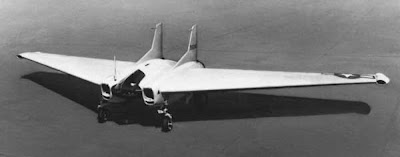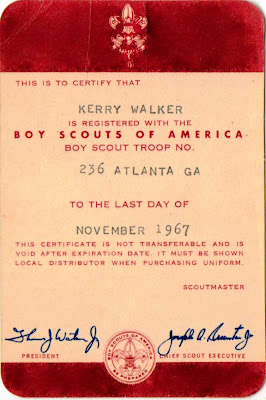.
Tuesday, November 30, 2010
Monday, November 29, 2010
'POLITICAL MELTDOWN' for Politics in America
WikiLeaks group behind vast new revelation
claims docs show US spying on allies,
shady backroom deals & corporate lobbying.
In a critical article Sunday, Der Spiegel concluded:
In a critical article Sunday, Der Spiegel concluded:
"Never before in history has a superpower lost
control of such vast amounts of such sensitive information --
data that can help paint a picture of the foundation
upon which U.S. foreign policy is built. Never before has the
trust America's partners have in the country
been as badly shaken. Now, their own personal views and
policy recommendations have been made public --
as have America's true view of them."
WikiLeaks founder, Julian Assange, is now being
sought after by Interpol, for sexual harrasment and
rape. Interpol is an international police organization that
has been around since it was formed in 1923. It sounds
like he is getting set up to take the fall and stop a political
meldown.
Think about this fact: INTERPOL, the largest international
police organization, has been around since 1923, and look
at the state of the world since that time.
There is hope...read my free book...
search: The Dawn of Intelligence
.
Thursday, November 25, 2010
American Bats are Dying Fast

 These most amazing mammals are dying fast. These
These most amazing mammals are dying fast. Theseincredible creatures appeared in the fossil record
suddenly and have changed very little over the past
forty thousand years...and their eco-location is a good
example of a cosmic creative energy at work...but now they
are dying off very fast...like the frogs and other amphibians--
like the turtles and so many other awesome creatures
on this beautiful planet, now the bats are dying because
of the wrong actions and inactions of people.
on this beautiful planet, now the bats are dying because
of the wrong actions and inactions of people.
.
Thursday, November 18, 2010
Wednesday, November 17, 2010
What is the self?

The First and Last Freedom
The First and Last Freedom Chapter 9 'What Is the Self?'
Do WE KNOW WHAT we mean by the self? By that, I mean the idea, the memory, the conclusion, the experience, the various forms of nameable and unnameable intentions, the conscious endeavour to be or not to be, the accumulated memory of the unconscious, the racial, the group, the individual, the clan, and the whole of it all, whether it is projected outwardly in action or projected spiritually as virtue; the striving after all this is the self. In it is included the competition, the desire to be. The whole process of that is the self; and we know actually when we are faced with it that it is an evil thing. I am using the word `evil' intentionally, because the self is dividing: the self is self-enclosing: its activities, however noble, are separative and isolating. We know all this. We also know those extraordinary moments when the self is not there, in which there is no sense of endeavour, of effort, and which happens when there is love.
It seems to me that it is important to understand how experience strengthens the self. If we are earnest, we should understand this problem of experience. Now what do we mean by experience? We have experience all the time, impressions; and we translate those impressions, and we react or act according to them; we are calculating, cunning, and so on. There is the constant interplay between what is seen objectively and our reaction to it, and interplay between the conscious and the memories of the unconscious.
According to my memories, I react to whatever I see, to whatever I feel. In this process of reacting to what I see, what I feel, what I know, what I believe, experience is taking place, is it not? Reaction, response to something seen, is experience. When I see you, I react; the naming of that reaction is experience. If I do not name that reaction it is not an experience. Watch your own responses and what is taking place about you. There is no experience unless there is a naming process going on at the same time. If I do not recognize you, how can I have the experience of meeting you? It sounds simple and right. Is it not a fact? That is if I do not react according to my memories, according to my conditioning, according to my prejudices, how can I know that I have had an experience?
Then there is the projection of various desires. I desire to be protected, to have security inwardly; or I desire to have a Master, a guru, a teacher, a God; and I experience that which I have projected; that is I have projected a desire which has taken a form, to which I have given a name; to that I react. It is my projection. It is my naming. That desire which gives me an experience makes me say: "I have experience", "I have met the Master", or "I have not met the Master". You know the whole process of naming an experience. Desire is what you call experience, is it not?
When I desire silence of the mind, what is taking place? What happens? I see the importance of having a silent mind, a quiet mind, for various reasons; because the Upanishads have said so, religious scriptures have said so, saints have said it, and also occasionally I myself feel how good it is to be quiet, because my mind is so very chatty all the day. At times I feel how nice, how pleasurable it is to have a peaceful mind, a silent mind. The desire is to experience silence. I want to have a silent mind, and so I ask "How can I get it?" I know what this or that book says about meditation, and the various forms of discipline. So through discipline I seek to experience silence. The self, the `me', has therefore established itself in the experience of silence.
I want to understand what is truth; that is my desire, my longing; then there follows my projection of what I consider to be the truth, because I have read lots about it; I have heard many people talk about it; religious scriptures have described it. I want all that. What happens? The very want, the very desire is projected, and I experience because I recognize that projected state. If I did not recognize that state, I would not call it truth. I recognize it and I experience it; and that experience gives strength to the self, to the `me', does it not? So the self becomes entrenched in the experience. Then you say "I know", "the Master exists",'`there is God" or "there is no God; you say that a particular political system is right and all others are not.
So experience is always strengthening the `me'. The more you are entrenched in your experience, the more does the self get strengthened. As a result of this, you have a certa1n strength of character, strength of knowledge, of belief, which you display to other people because you know they are not as clever as you are, and because you have the gift of the pen or of speech and you are cunning. Because the self is still acting, so your beliefs, your Masters, your castes, your economic system are all a process of isolation, and they therefore bring contention. You must, if you are at all serious or earnest in this, dissolve this centre completely and not justify it. That is why we must understand the process of experience.
Is it possible for the mind, fur the self, not to project, not to desire, not to experience? We see that all experiences of the self are a negation, a destruction, and yet we call them positive action, don't we? That is what we call the positive way of life. To undo this whole process is, to you, negation. Are you right in that? Can we, you and I, as individuals, go to the root of it and understand the process of the self? Now what brings about dissolution of the self? Religious and other groups have offered identification, have they not? "Identify yourself with a larger, and the self disappears", is what they say. But surely identification is still the process of the self; the larger is simply the projection of the `me', which I experience and which therefore strengthens the `me'.
All the various forms of discipline, belief and knowledge surely only strengthen the self. Can we find an element which will dissolve the self? Or is that a wrong question? That is what we want basically. We want to find something which will dissolve the `me', do we not? We think there are various means, namely, identification, belief, etc; but all of them are at the same level; one is not superior to the other, because all of them are equally powerful in strengthening the self the `me'. So can I see the `me' wherever it functions, and see its destructive forces and energy? Whatever name I may give to it, it is an isolating force, it is a destructive force, and I want to find a way of dissolving it. You must have asked this yourself - "I see the `I' functioning all the time and always bringing anxiety, fear, frustration, despair, misery, not only to myself but to all around me. Is it possible for that self to be dissolved, not partially but completely?" Can we go to the root of it and destroy it? That is the only way of truly functioning, is it not? I do not want to be partially intelligent but intelligent in an integrated manner. Most of us are intelligent in layers, you probably in one way and I in some other way. Some of you are intelligent in your business work, some others in your office work, and so on; people are intelligent in different ways; but we are not integrally intelligent. To be integrally intelligent means to be without the self. Is it possible?
Is it possible for the self to be completely absent now? You know it is possible. What are the necessary ingredients, requirements? What is the element that brings it about? Can I find it? When I put that question "Can I find it?" surely I am convinced that it is possible; so I have already created an experience in which the self is going to be strengthened, is it not? Understanding of the self requires a great deal of intelligence, a great deal of watchfulness, alertness, watching ceaselessly, so that it does not slip away. I, who am very earnest, want to dissolve the self. When I say that, I know it is possible to dissolve the self. The moment I say;I want to dissolve this", in that there is still the experiencing of the self; and so the self is strengthened. So how is it possible for the self not to experience? One can see that the state of creation is not at all the experience of the self Creation is when the self is not there, because creation is not intellectual, is not of the mind, is not self-projected, is something beyond all experiencing. So is it possible for the mind to be quite still, in a state of non-recognition, or non-experiencing, to be in a state in which creation can take place, which means when the self is not there, when the self is absent? The problem is this, is it not? Any movement of the mind, positive or negative, is an experience which actually strengthens the `me'. Is it possible for the mind not to recognize? That can only take place when there is complete silence, but not the silence which is an experience of the self and which therefore strengthens the self.
Is there an entity apart from the self which looks at the self and dissolves the self? Is there a spiritual entity which supercedes the self and destroys it, which puts it aside? We think there is, don't we? Most religious people think there is such an element. The materialist says, "It is impossible for the self to be destroyed; it can only be conditioned and restrained - politically, economically and socially; we can hold it firmly within a certain pattern and we can break it; and therefore it can be made to lead a high life, a moral life, and not to interfere with anything but to follow the social pattern, and to function merely as a machine". That we know. There are other people, the so-called religious ones - they are not really religious, though we call them so - who say, "Fundamentally, there is such an element. If we can get into touch with it, it will dissolve the self".
Is there such an element to dissolve the self? Please see what we are doing. We are forcing the self into a corner. If you allow yourself to be forced into the corner, you will see what will happen. We should like there to be an element which is timeless, which is not of the self, which, we hope, will come and intercede and destroy the self - and which we call God. Now is there such a thing which the mind can conceive? There may be or there may not be; that is not the point. But when the mind seeks a timeless spiritual state which will go into action in order to destroy the self is that not another form of experience which is strengthening the `me'? When you believe, is that not what is actually taking place? When you believe that there is truth, God, the timeless state, immortality, is that not the process of strengthening the self? The self has projected that thing which you feel and believe will come and destroy the self. So, having projected this idea of continuance in a timeless state as a spiritual entity, you have an experience; and such experience only strengthens the self; and therefore what have you done? You have not really destroyed the self but only given it a different name, a different quality; the self is still there, because you have experienced it. Thus our action from the beginning to the end is the same action, only we think it is evolving, growing, becoming more and more beautiful; but, if you observe inwardly, it is the same action going on, the same `me' functioning at different levels with different labels, different names.
When you see the whole process, the cunning, extraordinary inventions, the intelligence of the self, how it covers itself up through identification, through virtue, through experience, through belief, through knowledge; when you see that the mind is moving in a circle, in a cage of its own making, what happens? When you are aware of it, fully cognizant of it, then are you not extraordinarily quiet - not through compulsion, not through any reward, not through any fear? When you recognize that every movement of the mind is merely a form of strengthening the self when you observe it, see it, when you are completely aware of it in action, when you come to that point - not ideologically, verbally, not through projected experiencing, but when you are actually in that state - then you will see that the mind, being utterly still, has no power of creating. Whatever the mind creates is in a circle, within the field of the self. When the mind is non-creating there is creation, which is not a recognizable process. Reality, truth, is not to be recognized. For truth to come, belief, knowledge, experiencing, the pursuit of virtue - all this must go. The virtuous person who is conscious of pursuing virtue can never find reality. He may be a very decent person; but that is entirely different from being a man of truth, a man who understands. To the man of truth, truth has come into being. A virtuous man is a righteous man, and a righteous man can never understand what is truth because virtue to him is the covering of the self the strengthening of the self because he is pursuing virtue. When he says "I must be without greed", the state of non-greed which he experiences only strengthens the self. That is why it is so important to be poor, not only in the things of the world but also in belief and in knowledge. A man with worldly riches or a man rich in knowledge and belief will never know anything but darkness, and will be the centre of all mischief and misery. But if you and I, as individuals, can see this whole working of the self, then we shall know what love is. I assure you that is the only reformation which can possibly change the world. Love is not of the self. Self cannot recognize love. You say "I love; but then, in the very saying of it, in the very experiencing of it, love is not. But, when you know love, self is not. When there is love, self is not.
.
John K. Northrop and Charles D. Walker
 The skilled hunter, Dick Wilson, bags a trophy
The skilled hunter, Dick Wilson, bags a trophy Charles Walker in his great invention--Vist-O-Flage
Charles Walker in his great invention--Vist-O-Flage Northrop XP-79B-Jet-Flying Ram
Northrop XP-79B-Jet-Flying Ram Northrop XP-56-Flying Bullet
Northrop XP-56-Flying BulletNorthrop xb-35
John B. Northrop, was a man with a dream...but, like
so many others, his dreams were crushed by the
actions of our government. He spent his whole life
struggling to convince others and our government
that his idea of a flying wing was a good one. He would
not succeed as he had hoped, and he had a break-down
and suffered a stroke late in life...but then our government,
at the end of John K. Northrop's life,
employed his ideas and his designs in two different war
planes and signed a contract with his company. Sadly, he would
not live to see his dream fulfilled because
of the incompetence of our government.
Like John Northrop, Charles D. Walker was a man
of vision. Mr. Walker worked many years to perfect
the garment that would change history...if it
had not been for our government. It was called
Vist-O-Flage, the original red camouflage.
It would make hunters practically invisible
to deer, and other big game, which are all
color blind, yet it would stand out sharply to
the other hunters. The secret is in Vist-O-Flage's
colors and shades. Its special, scientifically matched
tones of red absorb more light than ordinary
comouflage, thus eliminating glare, reflected light,
and minimizing the movement of the hunter.
Zoological tests and over six years of successful
hunts have proved conclusively that Vist-O-Flage
conceals presence and movement better than
any other color or pattern.
Yet, as they did with Mr. Northrop, the government
stood in the way of Mr. Walker's dream and chose to
ignore this reality, and passed laws requiring the
hunter to wear blaze orange...which is like holding
a mirror up to the wildlife and saying "here I am".
Again our government shows their incompetence
and does what they do best, and destroys
another man's dreams.
Subscribe to:
Posts (Atom)
















































